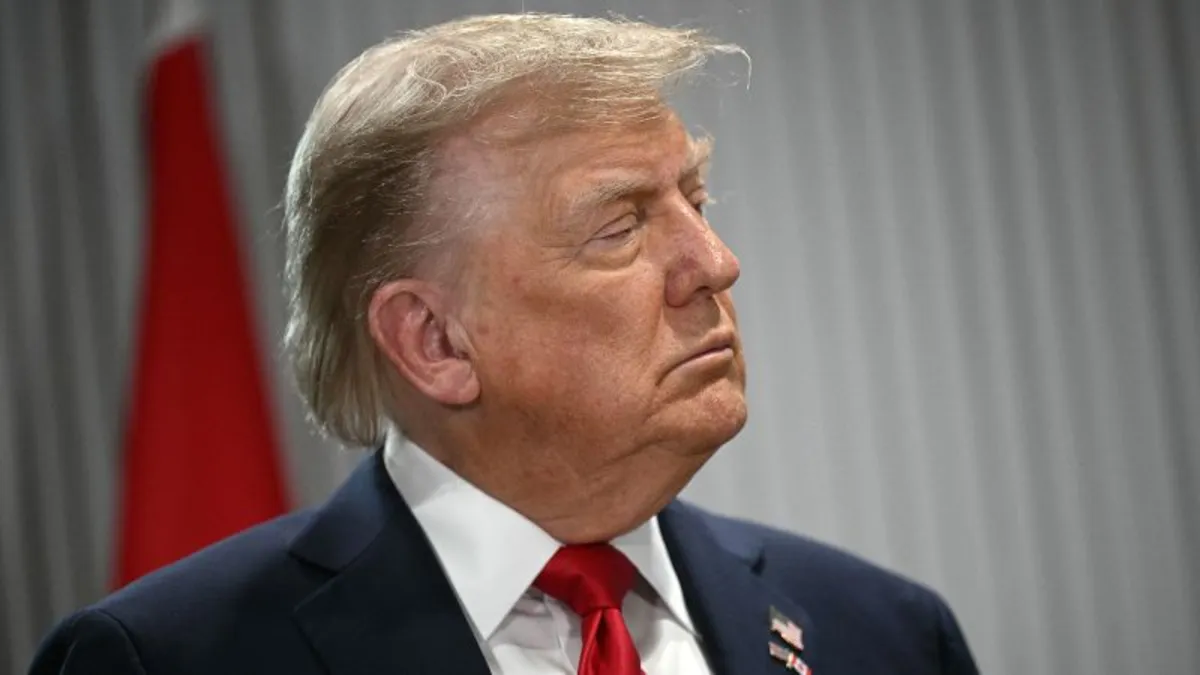
President Donald Trump has decided not to sign a joint statement advocating for de-escalation between Israel and Iran, which had been drafted by leaders of the G7 nations during a summit in Canada. According to sources familiar with the situation, while officials were hopeful that Trump might ultimately agree to support the statement, his current stance has created a noticeable divide among the G7 leaders as the summit begins in the picturesque Canadian Rockies.
The draft statement, primarily driven by European officials, asserts that Israel possesses the right to defend itself and emphasizes that Iran should not be allowed to acquire a nuclear weapon. As the summit approached, discussions were ongoing among the G7 delegations to finalize the language in this important document. European leaders, including French President Emmanuel Macron, German Chancellor Friedrich Merz, and British Prime Minister Keir Starmer, were working alongside Canadian Prime Minister Mark Carney to reach a consensus on the situation in the Middle East.
Trump’s decision to withhold his signature reflects his skepticism towards the efficacy of multilateral organizations like the G7. A White House official commented, “Under the strong leadership of President Trump, the United States is back to leading the effort to restore peace around the world. President Trump will continue to work towards ensuring Iran cannot obtain a nuclear weapon.” This statement underscores Trump’s commitment to a unilateral approach in foreign policy, particularly concerning Iran.
A senior White House official indicated that Trump saw no current need to endorse the joint statement, citing his previous public comments regarding the Israel-Iran conflict. The official further noted that Trump's presence at the summit serves as a demonstration of unity among world leaders, despite his reluctance to sign the statement. Meanwhile, a senior Canadian official mentioned that discussions around the statement would persist among G7 leaders, with a focus on reaching an agreement during the global security session that evening.
Prior to the summit, Trump expressed his belief that Iran is interested in de-escalating its ongoing conflict with Israel, which has recently intensified. He stated, “They’d like to talk, but they should have done that before. I had 60 days, and they had 60 days, and on the 61st day, I said, ‘We don’t have a deal.’” Trump emphasized that both parties need to engage in negotiations before the situation escalates further.
On the 61st day of Trump's ultimatum for Iran to reach a nuclear deal, Israel launched significant military strikes targeting Iran’s nuclear capabilities and military leadership. When pressed about potential U.S. military involvement, Trump remained vague, stating, “I don’t want to talk about that.” This ambiguity raises questions about the U.S. strategy in the evolving conflict.
As the G7 summit progresses, Trump’s counterparts are expected to question him about his strategy regarding Israel and Iran. European officials are particularly concerned about the duration of U.S. support for Israel's actions and whether Trump intends to exert pressure on Israeli Prime Minister Benjamin Netanyahu to de-escalate the situation.
Differences have surfaced between Trump and Macron regarding the potential role of Russian President Vladimir Putin as a mediator in the conflict. After a recent phone call with Putin, Trump suggested that the Russian leader could facilitate discussions. However, Macron rejected this notion, citing Russia’s violations of international law. Their contrasting views on Russia's involvement were highlighted during Trump’s first public appearance at the G7, where he criticized the bloc for expelling Russia eleven years ago.
As the G7 summit unfolds, the divide between Trump and other leaders regarding the Israel-Iran conflict and the broader implications of U.S. foreign policy continues to shape discussions. The outcome of ongoing negotiations will be closely monitored as leaders seek a unified approach to address the escalating tensions in the Middle East.